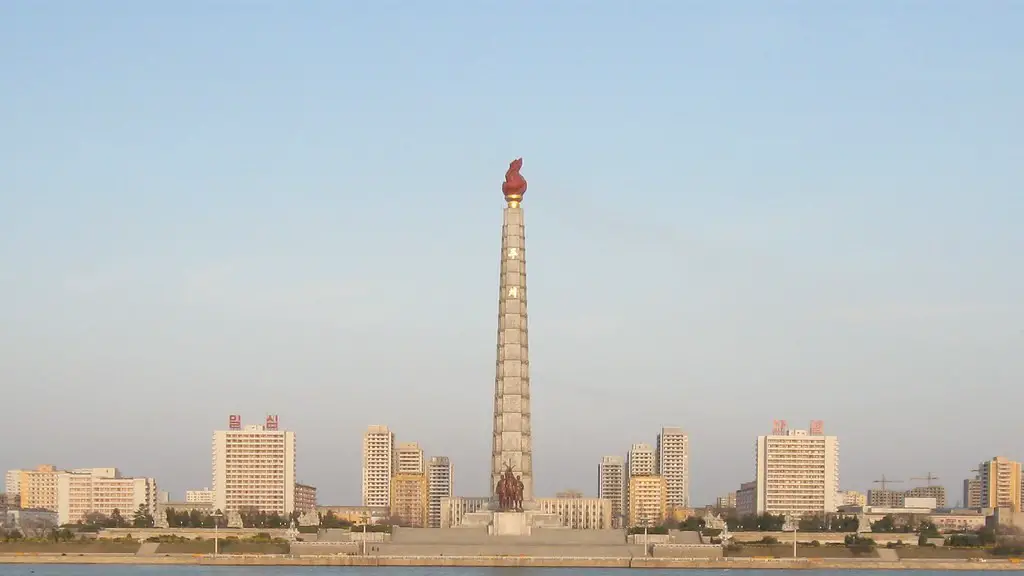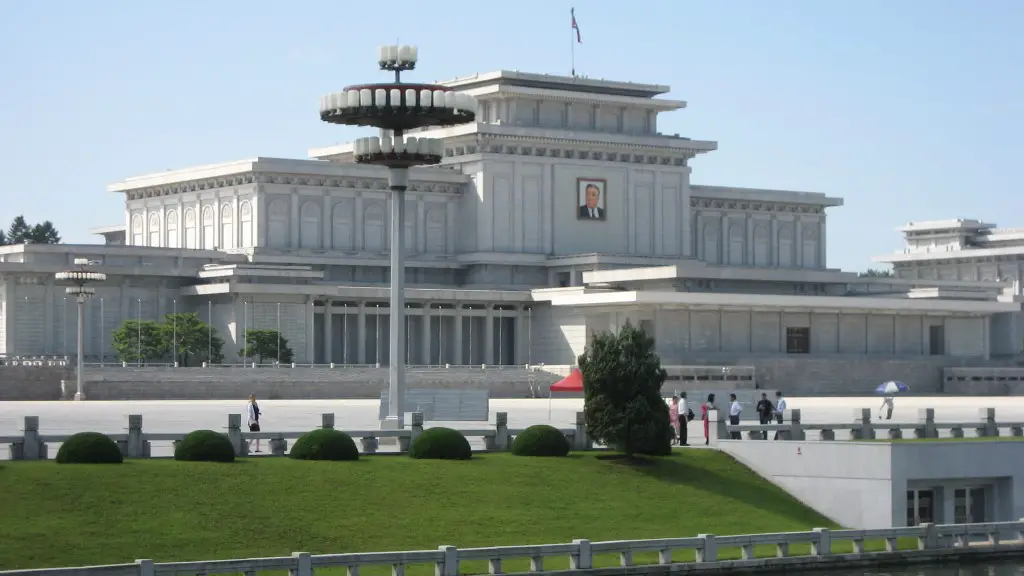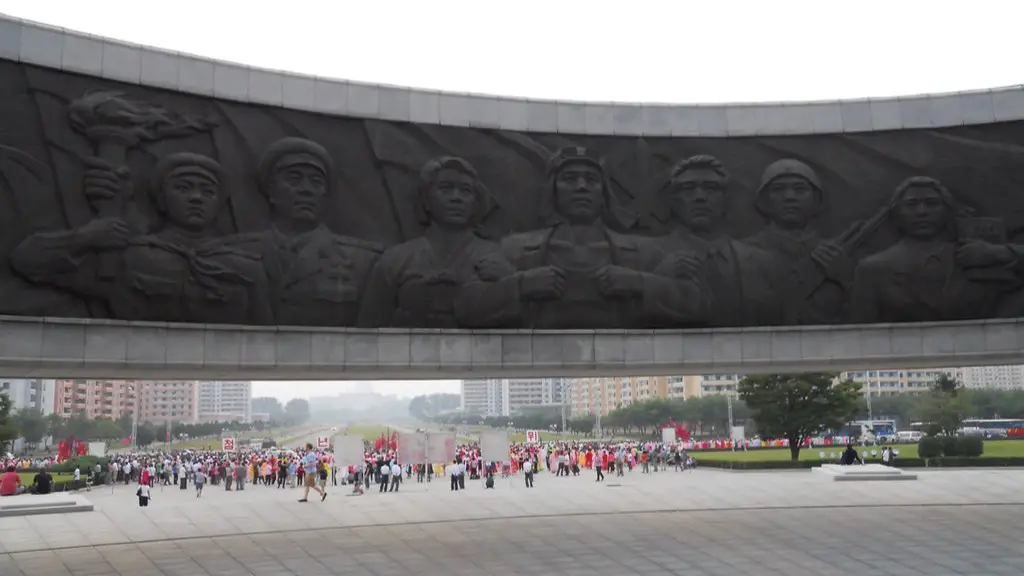Why Did America fight North Korea?
The Korean War (1950-1953) is a major site of contention in international relations. In June 1950, North Korean forces invaded South Korea, leading to a war involving the United States, China, and other nations. Quite simply, the United States joined the war to opposing aggression from North Korea and maintain peace and stability in Western Pacific.
The United States had a policy of containment towards the Soviet Union. They sought to limit any expansion of the Soviet Union’s influence, with North Korea seen as the embodiment of Soviet strength. North Korean aggression offered the Soviets an opportunity to expand their reach, and the US was determined to prevent this. The Americans were also influenced by the thinking of the time – that any aggression must be faced down in order to prevent it leading to further international instability.
The US was also operating in tandem with the United Nations, whose resolution had been passed in response to the North Korean invasion. This too was one of the main drivers of US involvement in the war, and the US was the key country in seeing it through.
In practical terms, the US deployed forces to shore up a South Korean resistance which was in danger of being overrun by the North Koreans. The US deployed forces to land by air and by sea, and provided support to the South Korean armed forces. This would eventually lead to a joint force of both US and South Korean forces being formed, further demonstrating US commitment to resistance against North Korean aggression.
The US was also motivated by the idea of proving that their containment policy had some muscle behind it. This was seen as important to demonstrate, not only to the Soviets, but to other potential aggressors in the region. The US was sending a powerful message by resisting the North Koreans, and this in turn had a wider effect on international relations.
The US had made clear that any aggression would meet resistance, and this bolstered the international order, eventually leading to a cessation of the war and restoration of South Korean independence. US involvement was seen as a success, and was a milestone in the development of US foreign policy.
The Geopolitical Role of The US
The US had a vision of becoming a moral global leader, directing their foreign policy towards a common goal of upholding international justice, security, and non-aggression. The Korean War validates this vision and speaks to the ability for a single nation to shape the international order. In short, the US is a superpower, and in this role, their actions can and do make a difference.
Although the American public was divided on the war, the US government was committed to the idea of containing Soviet power, preventing North Korean aggression, and supporting the South Korean people in defending their freedom. In this regard, the Korean War stands as an example of the US making an international statement. To some extent, the US was risking its own security by engaging with North Korean forces, a move which would come to be influential in later engagements such as in the Vietnam War.
The US was also keen on projecting a moral image to the world. As a beacon for democracy, the invasion of South Korea was seen as a breach of moral conduct, and the US chose to take a stand against this behavior. As a superpower, the US had many resources at its disposal, and it utilized these to express a strong opinion on the matter.
The US had a leader in the form of President Harry Truman, who refused to be intimidated by North Korea. Instead, he demonstrated strength and integrity and refused to be bullied by North Korea, standing firm as a symbol of US power. This is an example of the US leading by example in international relations, and is the kind of behavior the US is remembered for today.
What Legacy Did The War Leave?
The legacy of the US involvement in the Korean War is still felt today. In particular, the war was a turning point for US foreign policy. The US demonstrated that it had the strength to respond to aggression and maintain a commitment to justice in the international order. It highlighted the power of the United Nations and its various resolutions, and showed the importance of maintaining a balance between the world’s superpowers. It also marked a shift from traditional approaches to foreign policy towards a more proactive approach, which was the driving force behind US involvement in the Vietnam War.
The US also showed that its commitment to upholding the international order was a priority. Peace and stability in the region were a major factor in US decision-making, and the US attempted to restore this as quickly as possible. This is still something that the US is committed to today, and goes to show that the Korean War was an underlying factor in US foreign policy.
Finally, the war is also remembered for its human cost. The war had a huge impact on the lives of millions of ordinary Korean citizens, and the US was aware of this. For some people, the war still evokes strong emotions and strong memories of pain and suffering. The US acted in a humanitarian capacity, providing assistance to those afflicted by the war, and the legacy of the war is sometimes linked to the US’s legacy of compassion.
The Impact Of American Diplomacy
When looking at the US role in the Korean War, it cannot be stressed enough that American diplomacy played a major role in ending the conflict. The US used its status as a superpower to act as a mediator between the North and South Korean governments, helping to broker peace before the war had escalated too far.
This process included multiple negotiations between the two sides, with the US acting as a facilitator and third party. These negotiations resulted in a ceasefire, and the withdrawal of forces from the conflict zone. This was the turning point in the war, and the US had a major role in making this possible.
American diplomacy was also essential in brokering an effective cease-fire agreement between the warring nations. The US was successful in getting the North and South Koreans to agree to a peaceful resolution, and this was important for long-term peace and stability in the region. The diplomatic efforts of the US are often overlooked, but they are one of the main factors in ensuring a smooth resolution to the war.
The US was also instrumental in supporting the South Korean government in the aftermath of the war. The US provided humanitarian aid, reconstruction and development assistance, and helped to create a more stable government in South Korea. This was a major success in the longer term, and without the US’s help, the region might not have been as stable as it is today.
America’s Impact On Contemporary North Korea
It is also worth noting the impact of the US on contemporary North Korea. Although the US role in the conflict is still seen as controversial, it is undeniable that the US acted to put an end to North Korean aggression and maintained peace in the region. This, in turn, had major implications for the future of North Korea.
The US pressure on North Korea was a major deterrent, and it helped to prevent further aggressive actions from the North Korean government. Today, North Korea remains an isolated nation, and the US policy of containment has had a major impact on the nation’s future. North Korea remains an authoritarian state, with little prospect of democratization in the near future, and US involvement in the Korean War is widely seen as a contributing factor to this.
The Korean War is also seen as a major milestone in the development of US foreign policy. It demonstrated that the US could act in a responsible and effective way, and stand up to oppression and aggression from hostile nations. This, in turn, sent a strong message to the international community and showed that the US was a force to be reckoned with in international relations.
America and The United Nations
Finally, it is worth noting the role the US played in supporting the United Nations during the war. The US was the key player in the UN resolution which authorized the collective action against North Korea, and this is one of the reasons why the war was seen as a major victory in terms of international diplomacy.
The US also worked closely with the UN to maintain peace and stability in the region. This was a major factor in preserving the peace, and it is difficult to imagine the war ending in any other way without the US’s backing. This is a testament to the power of US-UN relations, and the importance of working together on key issues.
The legacy of the US involvement in the Korean War is still felt today. It stands as a major milestone in US foreign policy, and its influence is still being felt in the region. The US demonstrated its ability to contain aggression, foster peace and stability, and work closely with the United Nations in the pursuit of a better international order. It is this legacy that the US remains committed to, and for which it was instrumental in achieving.
Looking Ahead- Shaping The Future?
The effects of the US involvement in the Korean War are still shaping international relations today. The US’s actions during the war had major ramifications for the entire region, and it is no coincidence that the current issues in the Korean Peninsula stem from this event. US foreign policy is still oriented towards maintaining a balance between different countries and preventing hostile aggression, and these issues are still highly relevant today.
The US continues to use diplomacy in order to reach agreements between nations and ensure peace and stability. This is the legacy of the US’s actions in the Korean War, and it is an example which continues to be followed. The US also offers humanitarian aid and assistance to those affected by war and conflict, as evidenced by its support for the South Korean people during and after the war.
Ultimately, the US role in the Korean War stands as a major event in international relations. It demonstrated the power of US foreign policy, and showed the importance of the United Nations in maintaining peace and stability in the world. The lessons of the Korean War still shape US foreign policy today, and serve as a reminder of the importance of diplomacy and collective action in achieving common goals.





